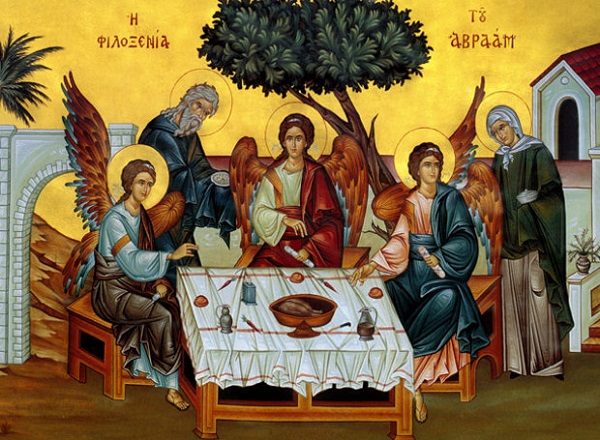01: Biblical Hospitality in Texts and Stories
Notes for 7 Jan
Discussion
As I am putting this series together I realize I am asking us to look at well-known stories and events through a very different lens. I can almost hear some of your reactions... I look forward to seeing how well I know you. This study has, for sure, shifted how I am viewing Biblical literature. I knew the concept of hospitality was core. I didn't not understand how much. I find myself re-evaluating my spiritual journey through this window. The goal is to look at a variety of people who chose to be hospitable in caring ways. I asked Steve to attach some materials (see 'Resources' below). I put them in because I think they can be helpful in our thinking for the rest of the series.
Some Basic Principles:
Genesis 1 & 2; Exodus 20:8-11; Romans 12:13, Romans 16:23, 1 Timothy 5:10, 1 Peter 4:9, 3 John 1:8
Some Teaching Stories:
Genesis 14:17-20;
Exodus 12:7,13;
Luke 10:25-37.
(These are just quick and/or odd examples. We will be looking at different stories, in more depth, over
the next six weeks)
Some Lenses to Consider:
- Context
- Language
- Location of story in a series; what are the texts or stories around the one we consider?
- Spiritual stages or places of the writer, the people in the stories, the intended audience.
- Intention of the writer; for instance, the focus of both Moses and Paul to create communities that represented God.
I posit that hospitality stories in the Bible include (at least) these seven components:
- Hospitality welcomes the outsider, the stranger, or the vulnerable traveler.
- In every story but one there is a possibility of some sort of danger or disaster
- Beings who are hospitable make a choice to take personal risks.
- A primary core value of a hospitable person, locale, or choice is that they are safe for the guest but also for others of the environs.
- Nurture is involved.
- Guests can be any sort of being.
- There are often unexpected results or blessings.
Genesis 1 and 2... Teaching principles through story.
- Who was/or were the host(s)?
- Who took the risk?
- What was done to make this first environ safe?
- What was done to make it nurturing?
- The danger... but information and cautions.
- What was the unexpected result(s)?
- What is it like for you to view this story through the lens of hospitality principles?
Just a note on Genesis 6 - I am starting to see the Noah story through the lenses of hospitality.
- What are the ways in which the concepts of hospitality play out with Abraham and Melchizdek?
- Because of these and other teaching stories found in Genesis, I see this Passover event through the eyes of Biblical hospitality principles. Where do you see it fitting?
Resources
-
Some extra materials:
Two difference constructs to look at spiritual or moral development: The outline of a workshop I do (Nourishing Safe Communities: Healing Injured Ones) to give you a sense of how I think about what makes a community safe and nurturing. - PDF of these notes
- Audio recording of class discussion (password protected)
